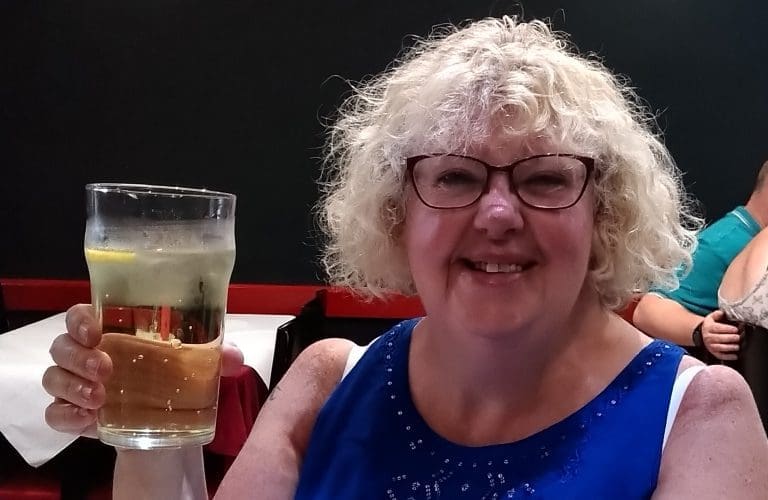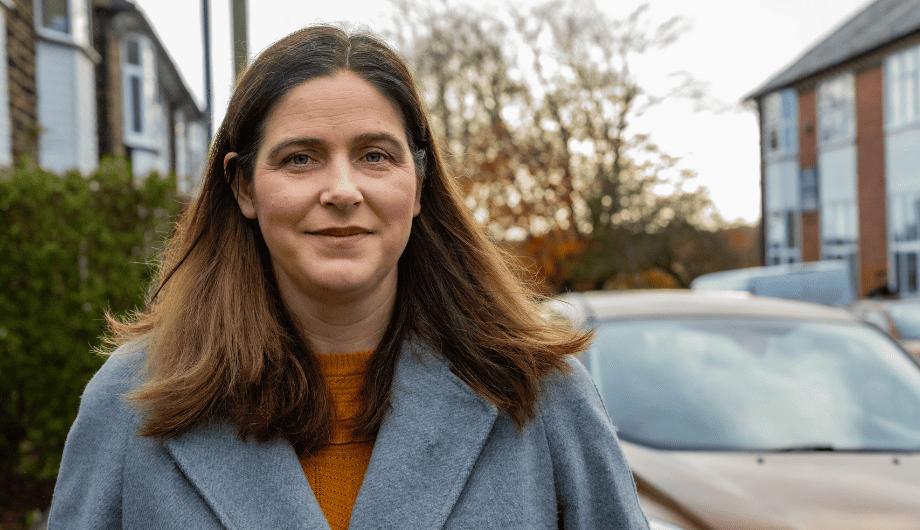
Peter’s story: “I don’t worry about the things I can’t do”
Peter was diagnosed with young onset Alzheimer’s disease in early 2015 aged 50.

Our specialist nurses explain what to do next after a diagnosis of young onset dementia. Addressing the following matters may help make life more manageable.
Young onset dementia is any type of dementia where symptoms develop at or under the age of 65.
Many people consider memory loss to be the main symptom of dementia, but this may not be significant in younger people in the early stages.
More commonly, symptoms include difficulties with:
Dementia usually progresses over several years. There may be periods when the person’s condition seems to have stabilised, but over time, the deterioration will continue.
Lasting power of attorney (LPA)
Lasting power of attorney is a legal process where someone appoints a trusted person/people (‘the attorney’) to make decisions for them in their best interests if they become unable to make decisions themselves. This is called ‘losing capacity’.
There are two types of LPA:
It is important for the person with dementia to make an LPA as soon as possible, while they can still make decisions and communicate their wishes.
Without an LPA, appointing someone to take over their affairs can be a lengthy and costly procedure.
For information on setting up an LPA visit Gov.uk or speak to a solicitor.
Wills
If the person with dementia hasn’t made a Will, it is important that they do so as soon as possible to ensure their money and possessions go to the people and causes close to their heart.
For more information on making or revising a Will, visit dementiauk.org/freewill or Gov.uk
Finances
If you or a family member or friend are diagnosed with dementia, it is a good idea to notify the bank or building society.
They can offer support with managing finances, for example by limiting access to funds to help prevent overspending.
It may also be useful to consult a financial adviser if you need advice on financial planning. You can search for regulated advisers at fca.org.uk
Benefits
A person with dementia may be eligible for benefits such as Personal Independence Payment (PIP) and a reduction in council tax. Family carers may qualify for Carer’s Allowance.
To find out which benefits you might be entitled to, visit gov.uk.
Employment
If the person with dementia works, telling their employer about their diagnosis will help protect them from discrimination at work and enable support to be put in place.
For some occupations, eg the military, healthcare and jobs that involve driving or working with machinery, it may be a contractual requirement to tell their employer.
If you care for someone with dementia, consider informing your own employer so that they can support you too.
If the person with dementia is struggling at work, speak to their GP about signing them off in order to access employment support and benefits.
Driving
A person with dementia is obliged to inform the DVLA (DVA in Northern Ireland) and their vehicle insurer of their diagnosis.
This does not necessarily mean they will lose their licence – they may be asked to take a driving assessment, and/or be issued with a shorter licence (up to five years), to be reassessed after that time.
The DVLA may ask the person’s GP or specialist if they consider the person fit to drive.
For more information on driving and dementia, visit:
The person may also be eligible for a Blue Badge, which allows people with health conditions or disabilities to park free of charge in accessible places such as on yellow lines and in disabled parking bays.
These tips may help make life easier for the person with dementia and those around them.
Admiral Nurse Dementia Helpline
0800 888 6678 (Monday-Friday 9am-9pm, Saturday and Sunday 9am-5pm)
helpline@dementiauk.org
Admiral Nurse virtual clinic – pre-booked appointments by phone or video call
Dementia UK information
Young Dementia Network
An online community of people living with young onset dementia, their family and friends, and professionals
Our virtual clinics give you the chance to discuss any questions or concerns about dementia, including young onset dementia, with a dementia specialist Admiral Nurse by phone or video call, at a time that suits you.

Peter was diagnosed with young onset Alzheimer’s disease in early 2015 aged 50.

Tracey – diagnosed with posterior cortical atrophy aged 45 – lives alone and is determined to remain positive and active.

When her partner Andy was diagnosed with dementia at the age of 52, Christine struggled to know where to turn. She is supporting our ‘We live dementia’ campaign to raise awareness of how our specialist dementia nurses can help.